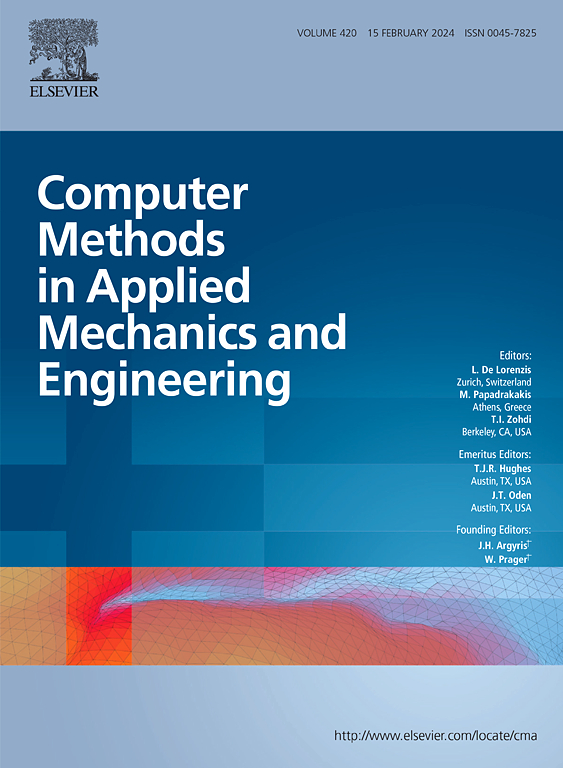SK-PINN: Accelerated physics-informed deep learning by smoothing kernel gradients
IF 6.9
1区 工程技术
Q1 ENGINEERING, MULTIDISCIPLINARY
Computer Methods in Applied Mechanics and Engineering
Pub Date : 2025-03-27
DOI:10.1016/j.cma.2025.117956
引用次数: 0
Abstract
The automatic differentiation (AD) in the vanilla physics-informed neural networks (PINNs) is the computational bottleneck for the high-efficiency analysis. The concept of derivative discretization in smoothed particle hydrodynamics (SPH) can provide an accelerated training method for PINNs. In this paper, smoothing kernel physics-informed neural networks (SK-PINNs) are established, which solve differential equations using smoothing kernel discretization. It is a robust framework capable of solving problems in the computational mechanics of complex domains. When the number of collocation points gradually increases, the training speed of SK-PINNs significantly surpasses that of vanilla PINNs. In cases involving large collocation point sets or higher-order problems, SK-PINN training can be up to tens of times faster than vanilla PINN. Additionally, analysis using neural tangent kernel (NTK) theory shows that the convergence rates of SK-PINNs are consistent with those of vanilla PINNs. The superior performance of SK-PINNs is demonstrated through various examples, including regular and complex domains, as well as forward and inverse problems in fluid dynamics and solid mechanics.
求助全文
约1分钟内获得全文
求助全文
来源期刊
CiteScore
12.70
自引率
15.30%
发文量
719
审稿时长
44 days
期刊介绍:
Computer Methods in Applied Mechanics and Engineering stands as a cornerstone in the realm of computational science and engineering. With a history spanning over five decades, the journal has been a key platform for disseminating papers on advanced mathematical modeling and numerical solutions. Interdisciplinary in nature, these contributions encompass mechanics, mathematics, computer science, and various scientific disciplines. The journal welcomes a broad range of computational methods addressing the simulation, analysis, and design of complex physical problems, making it a vital resource for researchers in the field.

 求助内容:
求助内容: 应助结果提醒方式:
应助结果提醒方式:


